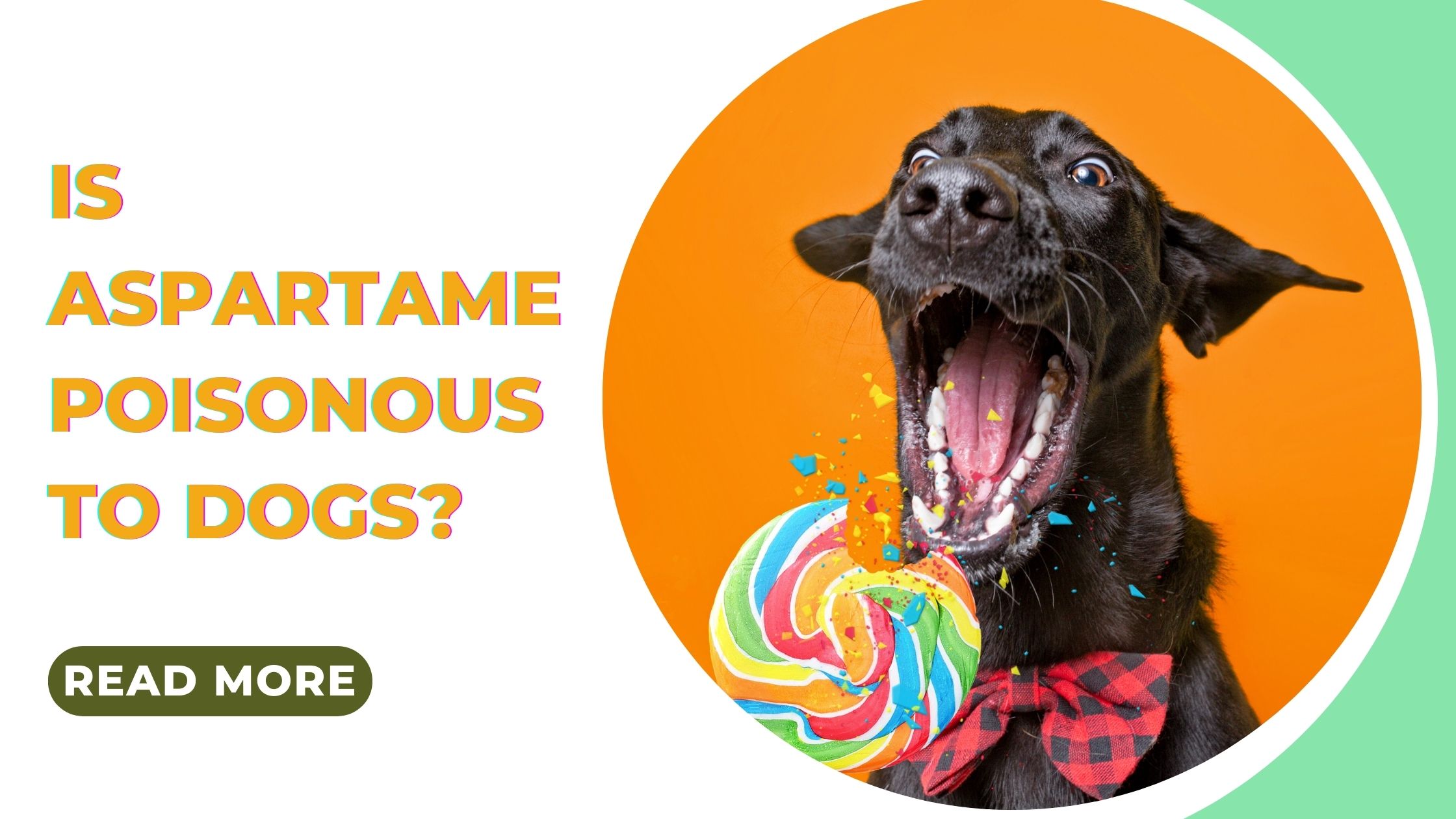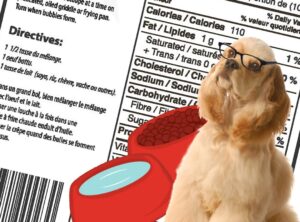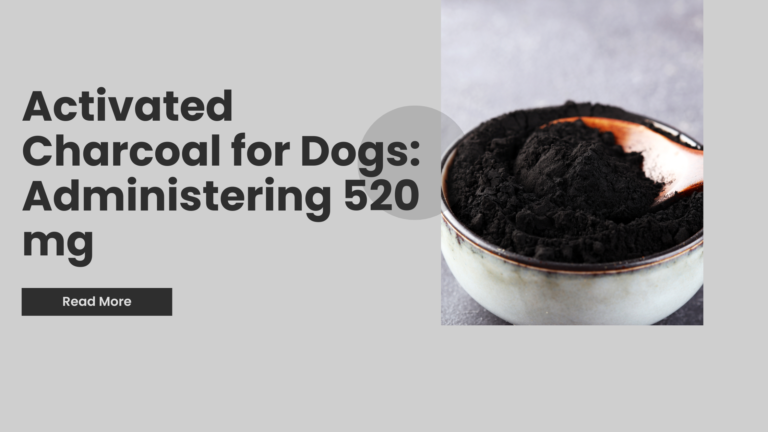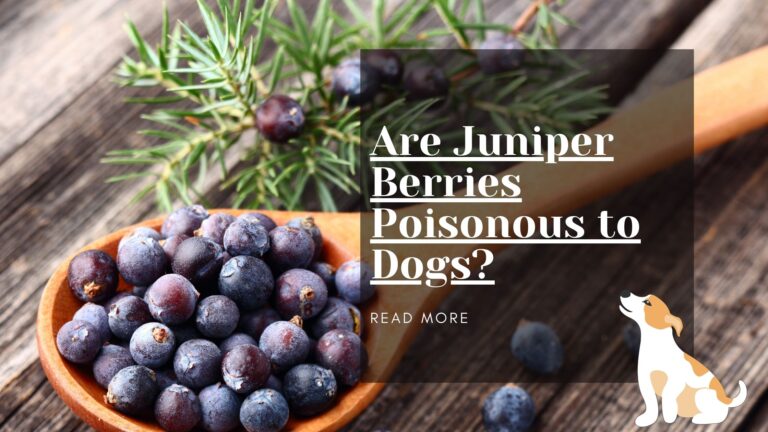Is Aspartame Poisonous to Dogs? A Vet’s Guide for Pet Owners

Are you worried about whether aspartame is bad for your pup? As a pet parent, often it’s hard to know which human foods and drinks are safe to give your furry friend. I have been there too! I’m an experienced vet who has spent years researching the effects of different ingredients on pets, including aspartame.
In this article, we’ll look at what exactly aspartame is, its potential dangers for dogs, how much should be given if any at all and more. By the end of this guide you will learn why it pays off to read labels when giving treats or snacks from home that contain aspartame. Additionally you’ll also gain insight into some healthier alternatives for reward-based training and snacking! Get ready – heres your complete guide on if aspartame is poisonous to dogs.
What is Aspartame and how does it affect dogs?

When it comes to artificial sweeteners, aspartame takes the cake. Well, not literally – you won’t find a sugary slice of heaven made solely with this stuff. But it’s definitely one of the big players in the game. You can spot it lurking in your favorite diet sodas, chewing gums, and even some yogurt brands.
Nowadays, we humans may consider ourselves pretty modern and advanced when it comes to our taste buds. We’ve mastered the art of creating flavors that trick our brains into thinking we’re indulging in something sinfully sweet while keeping those pesky calories at bay. And aspartame plays a crucial role in making that happen.
But wait just a minute! What about our furry friends? Our four-legged companions who wag their tails and give us those puppy dog eyes every time they see us munching on something tasty? Well, turns out their relationship with aspartame isn’t quite the same.
- Dogs have a unique metabolism
- Their bodies break down chemicals differently
- Aspartame can lead to toxic effects
You see, dogs are special creatures with their own specific set of rules when it comes to processing substances like aspartame. While we might happily sip on our diet soda without batting an eye, giving some to Fido could spell trouble for his little canine body.
We have covered an extensive guide on Ashwagandha which includes my dog ate kit kat with wrapper. Further to better understand the herb and its various uses, we have covered topics like are mock strawberries poisonous to dogs which you might be interested in. Also, check out our recent posts: is yakult good for dogs
Potential Dangers of Aspartame for Dogs
As pet owners, our furry friends are like family to us. We want nothing but the best for them, and that includes their diet. But when it comes to artificial sweeteners like aspartame, we can’t help but wonder if it’s safe for our canine companions.
While there isn’t concrete evidence proving that aspartame is toxic to dogs, some studies have raised concerns. One of these concerns is the breakdown of aspartame into methanol in the body. Methanol, in turn, can lead to formaldehyde accumulation. Now, you might be thinking – formaldehyde? Isn’t that used for embalming? Yes! And that’s exactly why we need to be cautious about this potential risk.
Furthermore, excessive intake of artificial sweeteners may cause gastrointestinal issues in dogs. Just like humans, dogs can experience upset stomachs due to an increased intake of certain substances. This includes bloating and diarrhea – two things no dog owner wants their beloved pet to go through.
Not only that, but artificial sweeteners could potentially contribute to weight gain and obesity in dogs too. With obesity being a growing concern among pets nowadays (pun intended), it’s crucial that we monitor what goes into their bodies.
In conclusion, while there isn’t hard evidence pointing towards aspartame being toxic specifically for dogs, it’s essential to exercise caution when considering its use or accidental ingestion by our four-legged pals. After all, keeping them healthy and happy should always be our top priority!
Also Read: https://cleverdogcare.com/is-echinacea-poisonous-to-dogs/
Symptoms of Aspartame Poisoning in Dogs
If you suspect that your furry friend has chowed down on aspartame, it’s important to be aware of the potential consequences. Aspartame, a common artificial sweetener found in many human foods and drinks, can have adverse effects on our canine companions. While studies are still ongoing regarding the precise impact of aspartame on dogs, there have been reports of various symptoms.
One possible indication that your pup may have ingested aspartame is vomiting. Look out for any sudden regurgitation or retching. Additionally, keep a close eye on their bathroom habits. If they experience diarrhea or start peeing more frequently than usual, it could be linked to an aspartame intake.
Moreover, if Fido is displaying signs of increased thirst or excessive urination, this could also be connected to consuming large amounts of aspartame. Pay attention to whether they seem unusually thirsty or need more frequent bathroom breaks.
Furthermore, abdominal pain and seizures are potential side effects that should not be ignored. If your dog shows signs of discomfort in their tummy area or experiences uncontrolled convulsions, it’s crucial to seek professional veterinary assistance immediately.
Last but importantly, keep an eye out for any shifts in behavior such as increased irritability or restlessness. These changes could suggest that something isn’t right with your four-legged companion and may warrant further investigation by a veterinarian.
Remember: while these symptoms might indicate exposure to aspartame toxicity in dogs, they can also point toward other underlying health issues unrelated to the artificial sweetener compound itself. Consequently, obtaining expert advice from a trusted vet is essential for obtaining an accurate diagnosis and ensuring appropriate treatment for our beloved canine pals.
Also Read: https://cleverdogcare.com/can-dogs-eat-quenepas/
How Much Aspartame Can Dogs Consume Safely?

When it comes to our furry friends, their health and well-being is of the utmost importance. And part of keeping them healthy means being aware of what they consume. Aspartame, an artificial sweetener commonly found in many human foods, is one such ingredient that we need to be cautious about when it comes to our dogs.
The effects of aspartame on dogs have not been extensively studied, leaving us with a lack of standardized dosage guidelines. This can make it difficult to determine how much is safe for our pets to consume without any negative side effects. Therefore, it’s best to err on the side of caution and avoid giving them any foods containing this artificial sweetener altogether.
Instead, opt for safer alternatives when treating your furry friend. Natural sweeteners like honey or stevia can be used sparingly in moderation as a substitute for sugar in homemade dog treats or meals. Additionally, fruits such as apples or bananas can provide a naturally sweet taste while also offering nutritional benefits.
- Choose natural: Look for pet foods and treats that are made with natural ingredients and do not contain artificial additives like aspartame.
- Read labels: Take the time to read the ingredient list on the packaging carefully before purchasing any food products for your dog.
- Cook homemade: Consider making your own dog treats at home using simple ingredients that you trust and know are safe for your pet.
Your dog’s health should always come first! By avoiding foods with aspartame and opting for safer alternatives, you can ensure that your four-legged companion stays happy and healthy.
Also Read: https://cleverdogcare.com/can-dogs-eat-quenepas/
Healthier Alternatives for Reward-Based Training and Snacking
When it comes to rewarding your furry friend during training sessions or spoiling them with occasional snacks, it’s important to consider their overall health. Instead of reaching for treats that are packed with artificial sweeteners like aspartame, why not explore healthier options? Think about incorporating small pieces of fruits or vegetables into their diet or investing in specially formulated dog treats that prioritize wholesome ingredients.
By opting for these natural alternatives, you not only steer clear of potential risks associated with artificial additives but also provide additional nutritional benefits to your pup. Imagine the joy on their face when they sink their teeth into a juicy slice of apple or crunch down on a carrot stick! These healthy choices can help maintain their weight and digestive system while also promoting strong bones and shiny coats.
When it comes to rewarding your furry friend during training sessions
Instead of reaching for treats loaded with artificial sweeteners like aspartame
Incorporate small pieces of fruits or vegetables
Specially formulated dog treats prioritize wholesome ingredients opting for these natural alternatives
You avoid potential risks associated with artificial additives You provide additional nutritional benefits to your pup
Also Read: https://cleverdogcare.com/is-potentilla-indica-poisonous-to-dogs/
Importance of Reading Labels and Understanding Ingredients

When it comes to feeding our furry friends, we want nothing but the best for them. That’s why taking a few extra minutes to read those small labels on pet food containers can make all the difference in ensuring their well-being. One important thing to keep an eye out for is artificial sweeteners, like aspartame. While these may be harmless (or even tasty!) for us humans, they can pose serious health risks for dogs. So, next time you’re browsing through the aisles of your local pet store, be sure to avoid any products that contain this sugar substitute.
Instead, look for whole-food-based options when selecting your pup’s meals and treats. These choices tend to have minimal additives or preservatives, which means you’ll be giving your four-legged friend a more natural and nutritious diet. Plus, by opting for whole foods, you’ll also know exactly what ingredients are going into their bodies with no hidden surprises
Consulting Your Vet
When it comes to our furry friends’ nutrition, it’s important to seek guidance from the experts – and who better than your trusty veterinarian? These amazing professionals have dedicated their lives to understanding the unique needs of animals, including what they should (and shouldn’t) be eating. So if you’re feeling unsure about certain foods or ingredients, don’t hesitate to reach out!
Your vet will take into account various factors specific to your dog: their breed, age, overall health condition, and dietary requirements. With this information in hand, they can provide personalized advice tailored just for your pup. They’ll help you navigate through the vast sea of nutritional options available and ensure that you make informed decisions about what goes into your bowl.
Now let’s talk about artificial sweeteners like aspartame.
While these may seem harmless to us humans,they can pose potential risks for our four-legged companions.
The good news is:
Your vet is well aware of these risks and can guide you on how best to avoid them in your dog’s diet.
You see, aspartame and other artificial sweeteners might not sit well with dogs’ delicate digestive systems. They have different metabolic processes compared to humans and are more susceptible to developing adverse reactions. Your vet will help you identify alternative sweetening options that won’t compromise your pooch’s health or taste buds! So next time you’re pondering over which food or ingredient is safe for Fido, remember that a conversation with your veterinarian will bring clarity amidst all the confusion.
Also Read: https://cleverdogcare.com/can-dogs-eat-de-la-rosa-mazapan/
FAQ
1. Can aspartame be harmful or poisonous to dogs?
– Yes, aspartame can be toxic to dogs if consumed in large amounts.
2. What are the symptoms of aspartame poisoning in dogs?
– Symptoms of aspartame poisoning in dogs may include seizures, vomiting, diarrhea, increased thirst, and restlessness.
3. How much aspartame is considered dangerous for dogs?
– The amount of aspartame that can be toxic to a dog depends on its body weight and the concentration of the substance ingested. It’s best to consult with your veterinarian for specific guidance.
4. What should I do if my dog accidentally consumes products containing aspartame?
– If you suspect your dog has ingested products containing aspartame, it’s important to contact your veterinarian immediately for proper advice based on their health condition and quantity consumed.
5. Are there any safe alternatives to sweeten pet treats without using potentially harmful substances like aspartame?
– Yes! Many natural sweeteners like honey or mashed fruits such as apples or bananas can be used safely in homemade pet treats instead of artificial sweeteners like aspartame. However, it’s always advisable to check with your vet regarding what is suitable for your particular pet.






